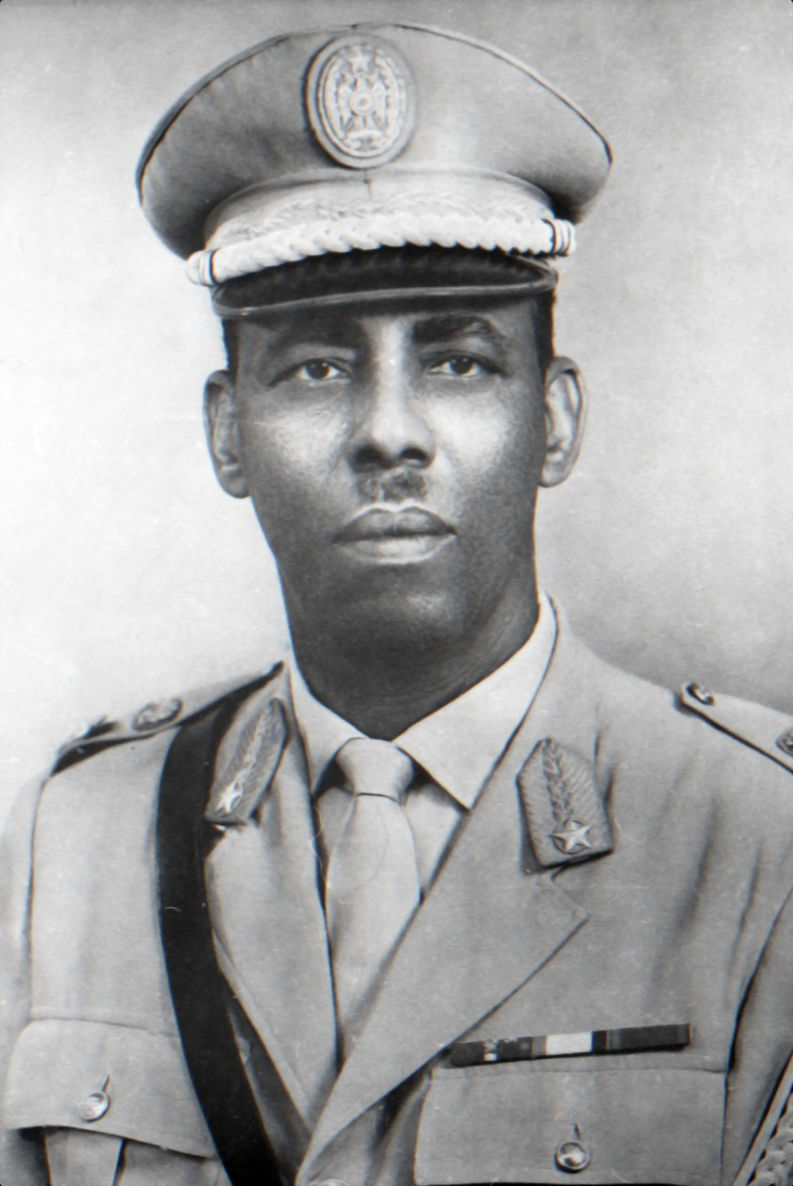In 1969, just nine years after the establishment of the Somalia Republic, a bloodless coup took place following the assassination of President Abdirashid Ali Shermarke.
The coup was led by Siad Barre, the leader of the Supreme Revolutionary Council and Somalia’s president from 1969-1991.
Barre was born on this day around the 1910s (his exact birth year is still unknown although many believe he was born in 1919) in the Ogaden region of the Ethiopian Empire. His parents died when he was just 10 years old. After finishing his primary school in Luuq, a town located in Somalia’s south, he moved to Mogadishu for his secondary education. Nothing much is known about his childhood.
When he was 16, he joined the Italian colonial police as a Zaptié, stating that he was born in Marehan town of Garbahaarey, within Somalia and not in Ogaden. Barre moved to Kenya after the British overran the Italians in Somalia. He trained at the King’s African Rifles at Kabete, in Kenya, and later joined the special branch of the British Colonial Police.

It was at this point that his interest in politics began and he used it to his advantage, rising to the highest ranks an indigenous Somali at the time could.
In 1949 when Italy was granted trusteeship over Somalia and to prepare to hand over independence after 10 years, Barre went to the Carabinieri Police College in Italy and took a number of classes in politics and administration in Mogadishu. He became the first Somali to be commissioned as a full police officer.
When President Shermake was assassinated in 1969, Barre used the uncertainty that followed to take over the presidency. What followed were arrests of significant political figures, banning of protests, dissolution of parliament and suspension of the constitution. Barre changed the country’s name to the Somali Democratic Republic and paved the way for scientific socialism.
Some of the changes he brought included the abandonment of Arabic and Waadad scripts, which have been used for years, and adoption of Latin script for the Somali language. He made Somali the official language to be used in government and in education. He also promoted anti-clanism in a country where the clan is one of the most vital forms of identity. He banned questions relating to the clan and arrested anyone and everyone found violating this rule.
In 1974, he was the chairperson of the Organisation of African Unity (now African Union) and hosted the summit that was attended by African leaders including Julius Nyerere and Samora Machel.

One of Barre’s visions was the establishment of a Greater Somalia, which would include Somalia, Ogaden region in Ethiopia, former Kenya’s North Eastern Province and Djibouti. This resulted in the 1977 Ogaden war between Somalia and Ethiopia. The army would be bundled out of Ogaden in 1978.

In the same year, a coup attempt was thwarted and a Barre turned to his family for help- most of his family members were military people rather than politicians and bureaucrats. This move marked the start of Barre’s decline.
The more his popularity waned, the more his inner circle called for repressions. Barre picked a fight with the Majeerteen clan, which he had accused of being behind the attempted coup. He not only purged people from the clan from his cabinet and military, but he also killed at least 2000 people from the clan.
He used the same tactics in 1988 against the Isaak clan, marking some of the worst atrocities he had ever committed. This was two years after he had been involved in a terrible car crash that saw him airlifted by the plane of the Saudi king.

It is said that Barre’s relatives plundered the country through poaching and ivory trade that also affected Kenya and Ethiopia. Although Barre had no interest in amassing personal wealth, he did not stop his people and could even be vindictive towards others who went against his family.
At this time, dissent was rising in all parts of Somalia. At the end of 1990, angry rebels infiltrated Mogadishu to confront the president. Barre fled the capital in January 1991, heading to Gedo region. He tried to recapture the capital city twice but was overwhelmed by General Mohamed Farrah Aidid.
Barre temporarily moved to Nairobi but protests by opposition groups forced him out. He then headed to Lagos where he stayed until his death in 1995.
In the last days of his presidency, Barre was said to have lost the Somali countryside to the clan chiefs, resulting in economic and social turmoil. He had also been accused of political imprisonment, torture, political killings and discrimination.
It has been recently reported that Barre was instrumental in helping Ugandan dictator Idi Amin to thwart off an invasion by Tanzania in 1972. He not only sent a peace keeping force (Libya’s Col Muammar Gaddafi sent a fighting force) but also facilitated the Mogadishu Accord between Tanzania and Uganda.

Siad Barre cuts a tape to open a road named after him in Kampala in October 1972. Photo: Daily Monitor
After Barre’s death, Somalia was plunged into civil war and is still recovering from the consequence of the war years later.










